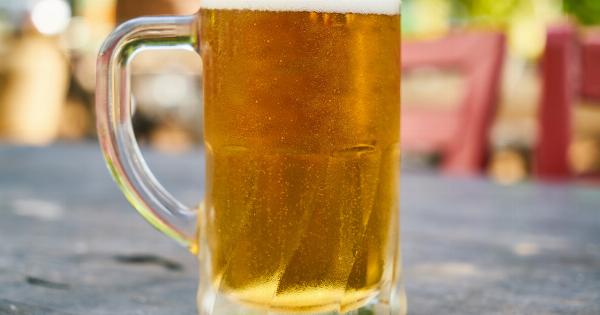Coffee is one of the most popular beverages in the world, with millions of people enjoying a cup or two every day.
However, for those who suffer from gastroesophageal reflux disease (GERD), also known as acid reflux, coffee can be a trigger for uncomfortable symptoms. In this article, we will explore the relationship between coffee and GERD, and provide some tips on how to minimize its impact on your digestive health.
What is Gastroesophageal Reflux Disease (GERD)?
GERD is a chronic digestive disorder in which stomach acid flows back into the esophagus, causing irritation and inflammation. Common symptoms include heartburn, chest pain, and regurgitation of stomach contents into the mouth.
It is estimated that around 20% of the population in the United States experiences GERD symptoms on a regular basis.
How Does Coffee Affect GERD?
Coffee has been identified as a potential trigger for acid reflux symptoms, although its effects can vary from person to person. There are a few reasons why coffee may worsen GERD symptoms:.
1. Increased Stomach Acid Production
Coffee stimulates the production of stomach acid, which can lead to an increase in acid reflux symptoms.
This is particularly true for people who already have excessive stomach acid production or a weak lower esophageal sphincter (LES), the muscular valve that prevents stomach acid from flowing back into the esophagus.
2. Relaxation of the LES
Caffeine, one of the main components of coffee, can cause the LES to relax, allowing stomach acid to flow back into the esophagus. The more caffeine consumed, the greater the likelihood of experiencing acid reflux symptoms.
3. Irritation of the Esophagus
Coffee is acidic in nature, and regular consumption can irritate the delicate lining of the esophagus, leading to inflammation and discomfort, especially if you already have a sensitive or damaged esophagus due to GERD.
Tips to Minimize Coffee-Induced GERD Symptoms
If you suffer from GERD but can’t bear to give up your morning coffee, there are several strategies you can try to minimize its impact on your symptoms:.
1. Opt for Low-Acid Coffee Beans
Some coffee beans are naturally lower in acid than others. Look for brands that offer “low acid” or “stomach-friendly” coffee options.
These beans are often subjected to special processing techniques that reduce their acidity levels.
2. Choose a Cold Brew or Decaffeinated Coffee
Cold brew coffee tends to be less acidic than hot brewed coffee, making it potentially gentler on the stomach.
Additionally, decaffeinated coffee can be a good alternative for those who are sensitive to caffeine, as it contains significantly less caffeine content.
3. Dilute Your Coffee
If you can’t give up regular hot brewed coffee, consider diluting it with water or milk. This can help reduce its acidity and make it less likely to trigger acid reflux symptoms.
Experiment with different ratios until you find one that works for you.
4. Drink Coffee with a Meal
Having coffee alongside a meal can help neutralize some of the acid and prevent it from causing as much irritation. However, it’s important to be mindful of your portion sizes and avoid overeating, as this can also contribute to GERD symptoms.
5. Wait Before Lying Down
Avoid lying down immediately after drinking coffee, as horizontal positions can increase the likelihood of acid reflux.
It’s recommended to wait at least two to three hours before lying down to allow your body to digest the coffee and reduce the chances of experiencing symptoms.
6. Consider Alternatives
If coffee consistently triggers your GERD symptoms, it may be worth exploring alternative hot beverages such as herbal teas or caffeine-free alternatives like chicory root coffee.
These options can provide a similar warm and comforting experience without the acidity or caffeine content.
Conclusion
While coffee may worsen GERD symptoms for some individuals, it doesn’t mean you have to give up your favorite beverage entirely.
By making small changes like opting for low-acid coffee beans or diluting your coffee, you can still enjoy a cup of joe while minimizing its impact on your gastroesophageal reflux. It’s essential to listen to your body and find the strategies that work best for you.






























